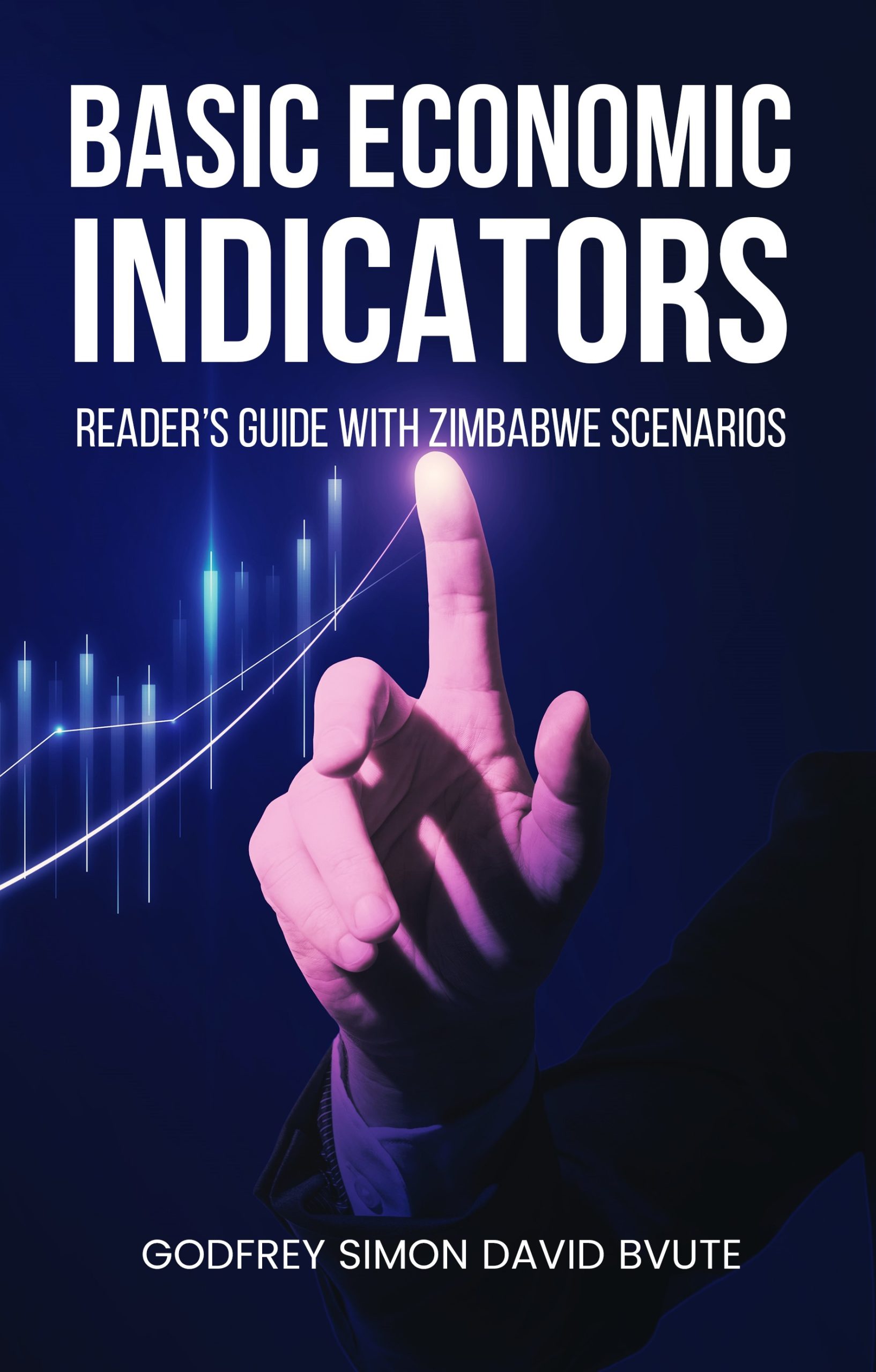Inflation isn’t just an abstract economic concept for me. It is a stark reality I’ve witnessed firsthand in Zimbabwe, a place where economic hardship isn’t a headline but a lived experience. As Godfrey Simon David Bvute highlights in Basic Economic Indicators: Reader’s Guide with Zimbabwe Scenarios, understanding economic indicators is crucial, especially in a volatile environment like ours. It’s not just about rising prices but about the real struggle for survival.

I’ve seen families grapple with the daily erosion of their purchasing power. For example, what was affordable yesterday – bread, maize meal, cooking oil – can be out of reach tomorrow. Fixed salaries become meaningless as inflation eats away at their value. This leaves many families unable to afford even basic necessities. Bvute’s book underscores how these indicators, like inflation, directly impact people’s lives, a reality I know too well.
In stable economies, savings are the foundation of financial security; in Zimbabwe, however, they have devolved into a cruel joke. For example, many will relate to the stories of bank accounts that once held the promise of a year’s school fees suddenly becoming worthless. It’s why many turn to alternative currencies like the US dollar. But access is limited, leaving most at the mercy of a rapidly devaluing local currency. Bvute explains how knowing these indicators and being financially literate become crucial for getting by day-to-day.
Businesses, both large and small, are caught in the inflationary crossfire. Prices for goods and raw materials fluctuate wildly, making planning impossible. I’ve seen businesses forced to close their doors, contributing to job losses and a surge in informal trading. Plus, many street vendors have become common, selling everything imaginable as formal employment opportunities dwindle. This is the face of struggle—the very reality Bvute aims to illuminate through his accessible guide to economic indicators.
Moreover, even essential infrastructure and services crumble under the weight of inflation. Government revenue plummets, leading to road cuts, healthcare, and education. Hospitals lack medicine, schools lack resources, and power outages become the norm. The poorest among us, those most reliant on these public services, bear the brunt of this decline. It’s a vicious cycle that Bvute’s book, Basic Economic Indicators: Reader’s Guide with Zimbabwe Scenarios, seeks to address by empowering individuals with economic knowledge.
Beyond the financial difficulties, inflation has a significant impact on how we live our lives. For instance, a lot of families are drastically cutting back on transportation expenses, skipping meals, and frantically looking for other sources of income. While not easy, increasing living costs in Zimbabwe bring back many relics of the past and is a stark reminder of the challenges we face daily. However, there is still hope left. With resources and individuals like Godfrey Simon David Bvute, it becomes easy for us to understand and take precautions to better our lives and make informed financial decisions that can positively contribute to our lives.
Basic Economic Indicators: Reader’s Guide with Zimbabwe Scenarios by Godfrey Simon David Bvute offers a comprehensive and accessible guide to understanding and interpreting economic indicators, specifically within the context of Zimbabwe’s unique economic landscape.
This book bridges the gap between complex economic theories and practical application, making it a valuable resource for a wide audience. Using real-world Zimbabwean examples to illustrate their impact, Bvute explains key macroeconomic concepts, including GDP, inflation, monetary policy, and trade balances. The book equips readers with the tools to analyze economic data, understand policy implications, and ultimately make more informed business, finance, and everyday decisions. Addressing the real challenges many Zimbabweans face, this book empowers readers with economic literacy, fostering confidence in navigating financial uncertainties and contributing to a more informed understanding of the nation’s economic trajectory.
Whether you are a student, business owner, policymaker, economist, or just someone looking to learn more about the factors influencing Zimbabwe’s economy, this book gives you the information and understanding you need to successfully negotiate the challenges of the contemporary economy and have a long-lasting influence on the nation’s economic future.